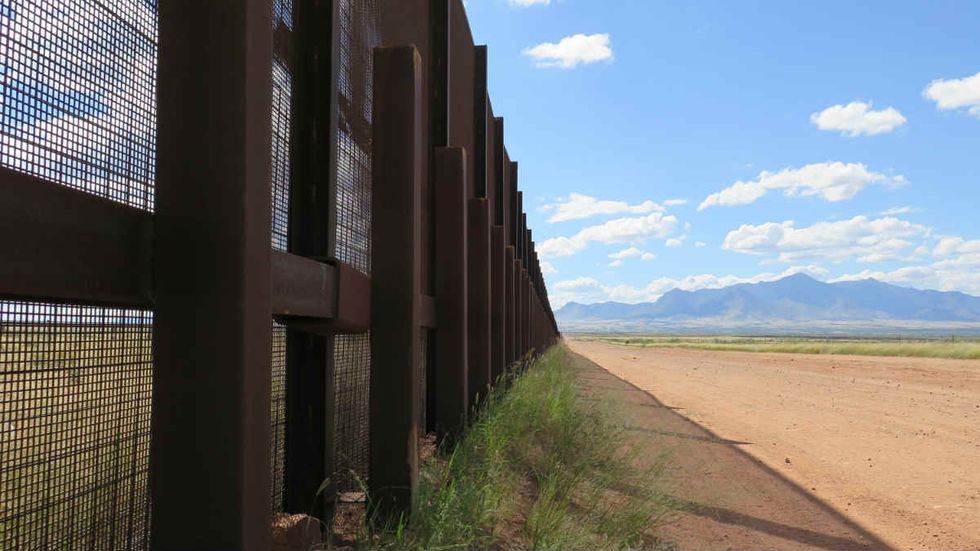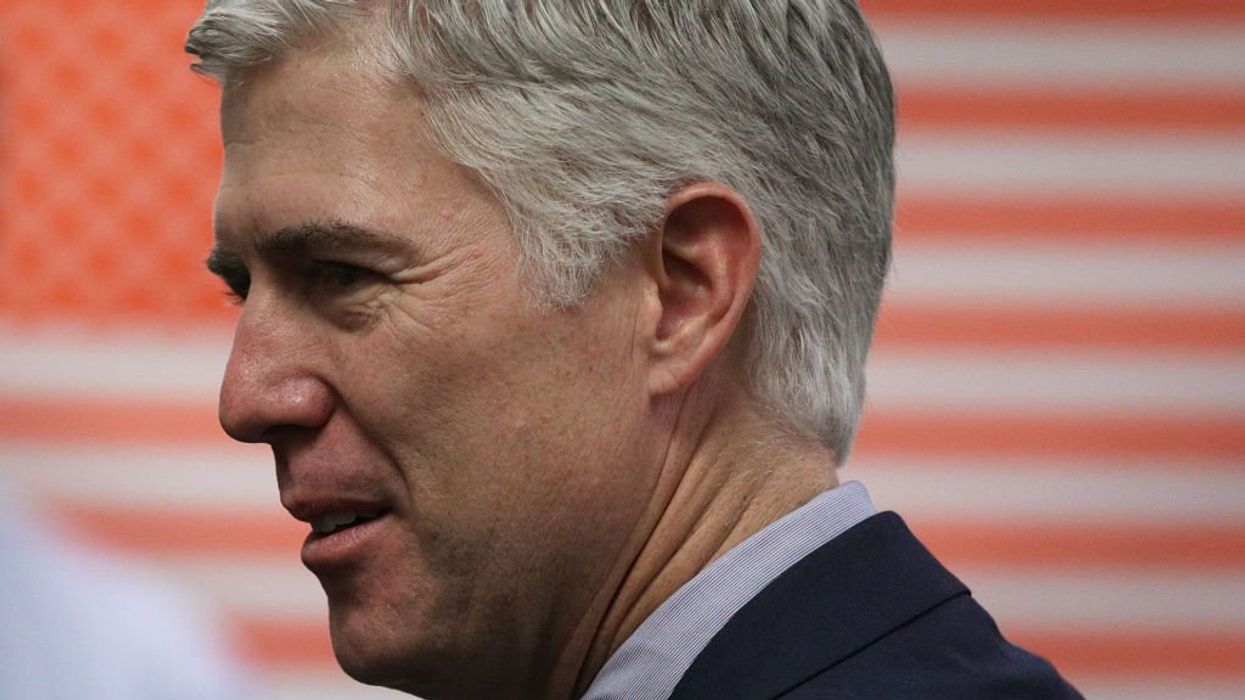
© 2024 Blaze Media LLC. All rights reserved.
The proposed budget deal before the House of Representatives is playing out like a bad replay of the latter Obama era: A Republican-controlled Congress — given the power of the purse by the American people — giving away the farm to Democrat demands.
But the capitulation is far worse than one may realize. It's not just the lack of new funding for a southern border wall; this omnibus, which funds countless liberal priorities, prohibits existing funds from being used on any sort of border wall as well.
The border wall is already the law of the land
According to a Congressional Research Service report from January, the Department of Homeland Security could have taken non-obligated funds and used them to put structures along areas of the border already spelled out in the Secure Fence Act of 2006 mandating a double-layered fence.
“Indeed, nothing in current law would appear to bar DHS from installing hundreds of miles of additional physical barriers," it contends, “at least so long as this action was determined appropriate to deter illegal crossings in areas of high illegal entry or was deemed warranted to achieve 'operational control' of the southern border."
It's important to remember that the requirement to construct “no less than 700 miles" of border fencing (originally 850 miles) has been the law on the books for over a decade. Obama used waiver authority and very loose discretion (thanks to the weakening of the law in 2008) to skirt the requirement.
Now that Trump wants to fulfill the existing mandate, Congress really has a moral obligation to honor the existing statutory authorization with sufficient appropriations. This is not some Trump boondoggle; this is a law passed with major bipartisan support in 2006.
What the current proposal does is not only not fund a border wall, but it's so specifically worded as to prohibit any of the currently allocated funds from going to construction on the project. The bill actually rescinds $21 million in unobligated funds for border fencing.
This means that even previous resources cannot be used on new construction as well, thereby tying the administration's hands and essentially weakening current law. Without this language, Trump could theoretically begin entering into contracts so that by the time the September funding bill is signed, he can hit the ground running with new funding (not that he will fight then, either).
So, rather than take what money exists and use that to start negotiating contracts, run studies, and do whatever else is conceivable on physical border security between now and when Congress revisits this never-ending budget circus in September, nothing except for maintenance on the current, insufficient structure will be permitted.
Border security for foreign nations, but not for us
Meanwhile, the current budget retains provisions either providing funds specifically for, or predicating them upon, border security in countries such as Jordan, Lebanon, Egypt, Pakistan, Libya, Ethiopia, and other countries “affected by extremism."
That is not to say that the security of these borders against the likes of jihadists aren't our concern, or that these provisions ought not to exist. Assisting in physically stopping the flow of terrorist arms and personnel across borders is but one basic tool to be employed in the global fight against Sharia supremacism. But the juxtaposition of these is telling.
A Republican Congress is willing to pass a bill that realizes border security is necessary for countries across the ocean, but will sacrifice not only a symbol of our own sovereignty, but a physical means of protecting it (the only effective way of tackling the policy and political problems with open borders).
It's important to remember amidst the slurry of apologia and same old platitudes about “next time," physical border security is far more than Trump's most salient campaign promise — it is current U.S. law.
This is not only a Republican Congress failing to fund a popular immigration mandate – which it has done multiple times since the original statute was passed in 2006 – but managing to chisel off what was already there in the first place.
Why? Because Republicans can't possibly shut down the government (despite winning the Senate in 2014 after the 2013 showdown). The implications of putting just 17 percent of the federal government's operations on pause for even a minute are just too dire, apparently. The sovereignty of our citizens, of course, can take a backseat; it already has for years.
Want to leave a tip?
We answer to you. Help keep our content free of advertisers and big tech censorship by leaving a tip today.
Want to join the conversation?
Already a subscriber?
Blaze Podcast Host
Daniel Horowitz is the host of “Conservative Review with Daniel Horowitz” and a senior editor for Blaze News.
RMConservative
Daniel Horowitz
Blaze Podcast Host
Daniel Horowitz is the host of “Conservative Review with Daniel Horowitz” and a senior editor for Blaze News. He writes on the most decisive battleground issues of our times, including the theft of American sovereignty through illegal immigration, theft of American liberty through tyranny, and theft of American law and order through criminal justice “reform.”
@RMConservative →Nate Madden
Nate is a former Congressional Correspondent at Blaze Media. Follow him on Twitter @NateOnTheHill.
more stories
Sign up for the Blaze newsletter
By signing up, you agree to our Privacy Policy and Terms of Use, and agree to receive content that may sometimes include advertisements. You may opt out at any time.
© 2024 Blaze Media LLC. All rights reserved.
Get the stories that matter most delivered directly to your inbox.
By signing up, you agree to our Privacy Policy and Terms of Use, and agree to receive content that may sometimes include advertisements. You may opt out at any time.




